#Lucy Courtenay
Explore tagged Tumblr posts
Text
#Lucy #Cooper #The Ghoul #Lucoper #Ghoulcy #VaultGhoul #OTP FOREVER #Barb #Nora #Fallout #Fallout 4 #Video-Game #AU Story #Ella Purnell #Walton Goggins #Frances Turner #Courtenay Taylor
AU where Nora (SoSu) was Cooper Howard's divorce lawyer. Nora was the only lawyer who'd return Cooper's calls because he got dubbed a commie, and she was already wearing that label like a fancy hat. Those alimony payments could have been so much worse.
Then I imagine him bumping into her on his way to New Vegas with Lucy. "Damn, you lawyer types really are vampires. You ain't aged a day since Barb tried to take me to the cleaners."
#Lucy#Cooper#The Ghoul#Lucoper#Ghoulcy#VaultGhoul#OTP FOREVER#Barb#Nora#Fallout#Fallout 4#Video-Game#AU Story#Ella Purnell#Walton Goggins#Frances Turner#Courtenay Taylor
206 notes
·
View notes
Note
Are you a Voldemort (“more”) or Voldemort (hard “t”) girl?
thank you very much for the ask, anon!
i'm a hard t girly without deviation, and i have two reasons as for why.
the first is that - as i've expanded on a little here - there's no way that a child from tom riddle's background would ever have formally encountered the french language and its phonetic conventions, and there's no way this would have been remedied at hogwarts, since the school doesn't [appear to] teach modern languages.
but riddle could have taught himself [some] french from books, meaning he'd be able to read the language, but not necessarily speak - and certainly not correctly pronounce - it. that is, he wouldn't realise the "t" in "mort" should be silent, and would pronounce his new name according to english phonetics.
this is a very neat distillation of who voldemort is. someone who would seek out the linguistic knowledge which many of his pureblood peers - who would very probably have been taught french as children by their governesses - had by virtue of their births to create the french-inspired moniker he uses to demonstrate his blood-supremacist importance, but who is restrained by his childhood and his class background from getting it completely right.
poor thing...
except the second reason - which is my preferred explanation - is that the hard t pronunciation is both deliberate and correct on voldemort's part, because we aren't supposed to think of "voldemort" as a french name at all.
there seems to be a fanon tendency to assume that many of the pureblood families we meet in canon have close, recent ties to france - that is, that they have french cousins or second cousins, own property in france, and speak french fluently as a native or heritage language.
and i do understand why this is, since many of the pureblood surnames we meet in canon - malfoy and lestrange being the most obvious examples - appear at first glance to be french.
but here we have something that i suspect gets lost in translation for readers outside of britain and ireland - which is why the fanon of purebloods having recent french heritage has developed - which is that these names are not [contemporary] french.
they are anglo-norman.
this is term which stems from the linguistic development which took place after england was invaded in 1066 by william the conqueror, a nobleman from normandy in northwestern france, who overthrew the reigning king - harold godwinson - and took the throne for himself.
harold and his people were speakers of old english - a germanic language, from the same language family from which dutch would emerge - while william spoke old norman - a romance language, from the same language family from which modern french and other langues d'oïl dialects would emerge.
the crashing together of two peoples, speaking languages from different linguistic families, resulted in the strange mongrel language anglo-norman, which gave way to middle english, and then to contemporary english - and it's the direct cause of why english has such a broad vocabulary, with subtle distinctions between words with ostensibly similar meanings like "deer" and "venison", "sheep" and "mutton", "kingly" and "royal", "ghost" and "spirit", "hopelessness" and "despair", "woods" and "forest", and "thoughtful" and "pensive", where other romance languages [french included] do not.
[a point which borges made far better than i do.]
to secure his position on the throne, william elevated his fellow norman conquerors to aristocratic status alongside - and often above - the existing anglo-saxon nobility.
these parvenu families had names which persist in britain today - baskerville, beaumont, clare, courtenay, d'arcy, de vere, devereux, gascoigne, harcout, lacey, latimer, lucy, mandeville, percy, purfoy, sinclair, vincent, and so on - including among families which continue to hold aristocratic titles, and among families who are not titled but who are nonetheless rich and socially prominent.
[the common joke that the royal family are, by the standards of the aristocracy, nouveau riche upstarts is because they have a germanic name - saxe-coburg-gotha - rather than an anglo-norman one.]
and within the world of harry potter, many of the pureblood [or recently pureblood] families we meet in canon have anglo-norman names which were historically aristocratic or gentry - avery, burke, crouch, fortescue, gaunt, lestrange, montague, sayre, travers, and so on. malfoy is a name jkr invented, but it conforms to the same principles - since, it should be noted, it's a play on an existing anglo-norman noble surname, purfoy [which means "pure faith" where malfoy means "bad faith"].
so names like malfoy are intended by the text to communicate that the people holding them are from old, posh, and very probably wealthy families - but from families which are nonetheless supposed to be understood as historically and culturally british.
[although not necessarily english - burke is a name widely found in ireland, for example, due to ireland's own anglo-norman colonisation.]
and one reason why these names are understood as british is linguistic - they're not pronounced in english the way they would be in french, not because they're being pronounced wrongly, but because they're part of languages which have evolved separately over the course of a millennium.
[the best examples? beauchamp - pronounced "bee-cham" - and mainwaring - pronounced "manner-ring".]
we say "malfoy", rather than "malfoi", and "lestrange" rather than "l'étrange" for this reason. and so we would - if we want to think of it as an anglo-norman, rather than a french, word - say "voldemort" rather than "voldemore".
the canonical voldemort is, without a doubt, a sincere blood- and magic-supremacist. he genuinely believes that the malfoys and lestranges are superior to those with muggle blood [even if he doesn't consider himself to fall under that category], and that this should give them social importance and power over the muggleborn and mixed-blood underclasses.
but what he isn't is someone who is deferential to the wizarding world's established class system, which assigns social importance and power on the basis of name, financial status, and adherence to social custom - since, of course, he is directly disadvantaged by this because he's born "tom riddle" and he grew up in an orphanage, no matter the antiquity of his maternal line and the immensity of his magical talent.
blood purity and magical power is certainly a significant part of this class system. but we can draw out of the text that its significance is clearly not expressed in the way voldemort thinks it should be.
we see throughout the latter half of the canon series that voldemort loathes the death eaters - such as anglo-norman legend lucius malfoy - who pretended not to have served him post-1981. and we also know that what he particularly dislikes is the idea that these death eaters disavowed him in order to continue enjoying the comfortable lives the established class system afforded them, rather than committing to his clearly more radical vision for how power relations should work in the wizarding world by refusing to disavow him:
"Lucius, my slippery friend," he whispered, halting before him. "I am told that you have not renounced the old ways, though to the world you present a respectable face. You are still ready to take the lead in a spot of Muggle-torture, I believe? Yet you never tried to find me, Lucius... Your exploits at the Quidditch World Cup were fun, I daresay... but might not your energies have been better directed toward finding and aiding your master?"
a huge amount of voldemort's relationship with the death eaters is based in his distaste for the esteem in which they hold the established class system. but, above and beyond this, it's based in the pleasure he gains from mocking them for this esteem.
he squats in their houses, refusing to follow the social conventions expected of guests by commandeering their domestic space as he sees fit. he insults his hosts when in company. he emasculates the male head of the families he has insinuated his way into by behaving like he's the person in charge of the household. he fucks at least one of their wives. he regards their children as his to do with as he wishes. he has no interest in manners or deportment or "correct" self-presentation and behaviour.
he makes them call him - a half-blood orphan who could never hope to outrank them in the system they revere - "my lord", and bow to him, and kiss the hems of his robes, and debase themselves for his favour.
we know that - as a teenager - voldemort spent a huge amount of time researching wizarding genealogy. without a doubt, the etymology of wizarding names would have been mentioned by the books and documents he used to do this.
and so it stands to reason that - in becoming lord voldemort - tom riddle deliberately assumed a name he intended to be understood as having the same anglo-norman flavour as those of his pureblood servants. whether he knew how voldemort would be pronounced in modern french or not is irrelevant - even if the hard t comes from a poor boy's ignorance of french phonetics, it doesn't diminish the actual purpose of the name in the slightest...
because what calling himself lord voldemort signifies is his contempt for - and his mockery of - the death eaters. it takes something they're so proud of - that their names indicate antiquity and nobility; that they are conferred social importance on the basis of their names alone - and shows that he considers both of these things singularly unimpressive.
why - it croons - would someone like lucius be so proud of bearing the malfoy name that he'd lie to the wizengamot and pretend he never prostrated himself at lord voldemort's feet just so the family reputation didn't have to take a hit?
why would he bother? when lord voldemort can invent a name which alludes to exactly the same linguistic principles whenever he likes and have it afforded infinitely more respect [so much respect that people literally fear to speak it!] than any of his servants' names ever have been or ever will be.
a diva!
219 notes
·
View notes
Text
Fortnight of Books 2024 ~ Day One
✨ Best Books of 2024 ✨
1. The Luminous Life of Lucy Landry by Anna Rose Johnson (8/10 hearts)
Y’all, I read this book on January 2nd, and despite reading over 570 books since, it’s still my favourite of the year. Ships, found family, lighthouses, treasure hunts, friendship, imagination… it’s so sweet. Check out my full review here.
2. Tomorrow Isn’t Promised by Chelsea Burden (8/10 hearts)
Okay, so we all know Chelsea Burden is one of my favourite authors ever. And this book is definitely my favourite of hers. I cried my eyes out but it did my heart so much good. Full review here.
3. Blind Date With a Book Nerd by Erica Dansereau & Britt Howard (8/10 hearts)
I would highlight this book as the one that I related to most and the one that touched me the most. I highly recommend it. It’s so deep and delightful. Check out my full review here.
4. The Good Ship “Red Lily” by Constance Savery (8/10 hearts)
I’ve wanted to read this book for years, since it was highly recommended to me. I was not disappointed! It’s phenomenal. Excellent writing, and such a lovely story. Here’s my review, and the Archive link.
5. Chasing the “Lutetia Light” by Michaela Bush (8/10 hearts)
This book haunted me, y’all. It’s so, so fun and so exciting, with such fantastic feels/aesthetics and a great message to boot. My full review here.
6. A Silent Hope by Madisyn Carlin(7/10 hearts)
Guys, when I said the Lutetia Light haunted me, this one also has to fill that slot. I am still thinking of this book, though I read it back in April. It’s so full of cool things (I WANT MORE BOOKS ABOUT GIANTS) and a fantastic message… Full review here.
7. Urram – Rekindled Hope by Cheyenne van Langevelde (7/10 hearts)
Remember Dìlseachd – A Stolen Crown? It was an 8/10 read, an absolutely amazing book. Well, this sequel was almost as fantastic. It was everything a sequel should be, and the most awesome Scottish alternate hisfic EVER. Here’s my full review!
8. A Name Unknown by Roseanna M. White (7/10 hearts)
This book was such a huge surprise to me. I believe it was my first read by Roseanna M. White, and I understand now why she is a favourite author for many of my friends. This book totally captured my imagination (and made me buy the whole adjacent series, ahem). Full review here.
9. The Way of the King by Hosanna Emily (7/10 hearts)
I loved The Torch Keepers, and this sequel was perfect. It’s such a great allegory with lovely writing and characters, and a very deep, beautiful message. View my full review here.
10. Hazelby Priors by Courtenay Burden (7/10 hearts)
I recommend this book so well to my mother, that she actually read it. My mother does not read fiction much, and she never reads new fiction. She also reads like 12 books a year. But she read this one and said it was very good, which is like 5/5 praise from my mother. So, it’s good, y’all. Check out my full review here.
✨ Best Rereads of 2024 ✨
1. The Witch of Blackbird Pond by Elizabeth George Speare (7/10 hearts)
I have always loved this book. It’s fascinated me for years, and every time I reread it I fall under its spell once more. I’m not exactly sure what makes it so very intriguing to me… perhaps it’s a combination. Full review here.
2. Left to Die by Hailey Rose (7/10 hearts)
I deeply enjoyed this book when I first read it, eight years ago… but now, as an adult, I loved it. It’s such an unexpectedly deep book. Full review here.
3. A Sidekick’s Tale by Elisabeth Grace Foley (7/10 hearts)
Oh my heart, this was ridiculously hilarious! I couldn’t stop laughing aloud! What absolute brilliance! Pure comedic genius! All the hype is TOTALLY worth it. Full review here.
4. Brothers-in-Arms by Jack Lewis Baillot (6/10 hearts)
Wow. I had been wanting to read this book for a long time, and when I finally got a copy last, I was so excited. I was sure I’d love it. And I was right. It was just as good upon reread, too. Full review here.
5. Jeanne, Fille du Roy by Suzanne Martel (6/10 hearts)
This is one of the few classic French books I’ve read and loved—and it’s probably because it’s actually Québécois. Suzanne Martel does such an epic job putting in all the history and yet leaving it a story. It is translated in English! Full review here (scroll down to the translation).
6. I Don’t Dance by Jesseca Wheaton (6/10 hearts)
I don’t drink sweet tea but I imagine this would be the written version of sweet tea. It’s just precious. Full review here.
7. Kilmeny of the Orchard by L.M. Montgomery (6/10 hearts)
I know this book isn’t for everyone. But it just happens to be a niched book that I really, really love. Full review here.
8. Sunset Summer by Jesseca Wheaton (5/10 hearts)
There is something so poignant about reading books written by your friends when they were young adults/late teens, just like you were, and you were all figuring out life together. Half my love for the book might be nostalgia, not gonna lie. It means so, so much to me personally. Full review here.
9. Christy by Catherine Marshall (5/10 hearts)
This book is intense. And huge. And it strikes to you like a burr. I read this for the first time when I was far too young to have any business reading it, but in defence of my preteen self, I thought it was an Anne of Green Gables style book because of the cover. Anyways, I read it and never forgot it through the decade that has passed. Much of the book was imprinted on my mind despite the hundreds of books—and I am not exaggerating—I’ve read since. It’s one of the few books I never forgot, and when I reread this this year, I found myself remembering some scenes almost word for word. That’s how much it struck and fascinated me. Full review here.
10. Island of the Blue Dolphins by Scott O’Dell (5/10 hearts)
I read this as a child and loved it… reread it over and over… made my own tales from it… and then years later reread it as an adult and apparently was very disappointed?? I don’t know what was wrong with me in 2020. (Ha.) Full review here.
✨ Best Series of 2024 ✨
• The Library Blitz Series by Courtenay Burden (new read)
This is ongoing but it’s a delightful WWII short story series celebrating the lesser-known heroes of London during the Blitz, featuring two wonderful cousins. 5 stars for all.
• The Once Upon a Western Series by Rachel Kovaciny (new)
A fantastic Western series with good Christian content, vivid characters, splendid humour, sweet romance, and excellent diversity. Average rating 5 stars, but there were a few 6 stars too.
• The Cornerstone Series by Multiple Authors (new)
This series is ongoing. These books are the ones I’ve read so far, and I’ve genuinely enjoyed them all. My average rating was 5 stars but there were some 6 and 7 stars too.
• The Pax Duology by Sara Pennypacker (new)
These two books must be read together. The first one isn’t complete without book 2. It’s such a deep, beautiful series. 5 stars each.
• The Chronicles of Uriu by Kaytlin Phillips (new)
I loved Emberling so much, and it’s stuck to me for months. Reef is a great prequel novella, and I look forward to the next books so much!
• The Laura Marlin Mysteries by Lauren St. John (new)
I read this series in French, and I only read the first 2 books in the series—the rest aren’t translated. *howls* I hope to read the rest in English on archive. Anyways, it was a great middle grade mystery series. I especially loved the friendship, the found family, the great respectful relationship between the adult and the child, and the awesome setting!
• The Secrets of Ormdale Series by Christina Baehr (new)
This was hands-down my favourite series of 2024—even with all that steep competition. The only reason it isn’t listed in my top favourite books of the year is because I wanted to list it here instead. It was fantastic. So deep and beautiful and true and serious and sweet. I can’t wait to reread it, and I recommend it to everyone.
• The Anna Solden Duology by Jean Little (reread)
Somehow I relate to Anna in many ways, and that hasn’t changed over the years. Every time I read this series, it hits me in a different way. Book 1 always reminds me we all need to realize that we need to take the time to stop and listen to people; book 2 encourages and motivates me to get up and keep fighting even when it seems too hard.
• The Dolphin Ring Series by Rosemary Sutcliff (reread)
I only reread the first 3 books but I loved them as much as ever—so much so that I purchased books 1 & 2 to own myself. (I can’t find any copies of book 3 to purchase. *bawls*)
• The World of Beatrix Potter (reread)
I’m not gonna list them all, but I reread this series this year and they were as fantastic as I remembered. ❤
11 notes
·
View notes
Text
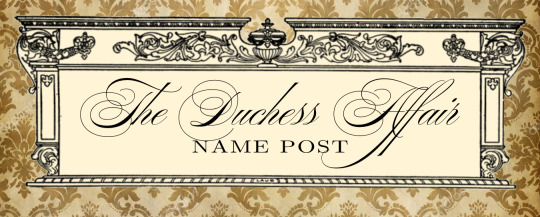
Hello one and all and welcome to the The Duchess Affair name post. This is a list of period-accurate given names you can give your MC if you need some inspiration or want to know what kinds of names ladies had back then. I've combed through the 1809 edition of Debrett's Peerage for names of noblewomen in the 1600s and 1700s in Britain, which is where I'm taking the liberty of assuming TDA is set.
As always, you can drop any questions in my inbox, I love love love playing reference librarian :-)
Most names in this period either came from the Bible or from literature. The Bible was the most common book owned and read, so Biblical names were frequently seen. Some nobles liked to show off how cultured and educated they were by naming their children after mythological figures or characters from poetry and history, but most people of all classes named children after ancestors or loved ones (which explains why it seems like it was the same dozen names getting passed around again and again.)
Very common names -- the majority of women back then had one of these names:
Anne
Caroline
Catharine (not a typo – this was the standard spelling in the 1700s!)
Charlotte
Diana
Elizabeth
Frances
Georgiana
Henrietta
Isabella
Jane
Louisa
Margaret
Maria (pronounced like “Mariah”)
Martha
Mary
Sarah
Sophia
Less common but not unheard-of names:
Agnes
Alathea
Albinia/Albina
Alicia/Alice
Amelia/ Emilia/Emily
Arabella
Augusta
Barbara
Bridget
Cassandra
Cecilia/Cecily
Clarissa
Constance/Constantia
Dorothea/Dorothy
Eleanor
Emma
Gertrude
Grace
Harriet/Harriott
Hester
Honora/Honoria
Jemima
Judith
Julia
Juliana
Lavinia
Laetitia/Letitia
Laura
Lucy
Marianna/Marianne
Matilda
Penelope
Priscilla
Rachael
Rebecca
Susan/Susanna/Susannah
Theodosia
Theresa
Thomasina/Thomasine
Rarities and oddities -- I only came across these names once or twice each, use them to add a bit of flavor and eccentricity!!!:
Abigail
Amabel/Amabella
Amantha
Anastasia
Angelica
Annabella
Antonia
Araminta
Beatrix
Camilla
Christiana/Christina
Clara
Clementia/Clementina
Dulcibella
Esme
Ethelred
Eugenia
Felicia
Flavia
Flora
Florentia
Frederica
Gabriella
Helen/Helena
Horatia
Josepha
Leonora
Madelina
Margaretta
Narcissa
Octavia
Olivia
Philadelphia
Rose
Selina
Sibella/Sibilla/Sibylla
Tryphena
Urania
Winifred
And just for fun, some extremely British sounding surnames I found that made me chuckle aristocratically:
Beckington
Cavendish
Chatham
Courtenay
Dalrymple
Darlington
Fortescue
Gainsborough
Kingscote
Lovelace
Mountstuart
Ogilvie
Pembroke
Pierrepont
Posonby
Tattershall
Twisleton
Wentworth
Willoughby
Wriothesley
#playchoices#the duchess affair#choices the duchess affair#the duchess affair choices#choices tda#tda choices#duchess affair
39 notes
·
View notes
Photo
Experiment - Automatic Random_Reblog - Ask me !

Swinging London.
Michael Fish, with Susannah York, Peter S Cook, Tom Courtenay, Twiggy, Joe Orton, Miranda Chiu, and Lucy Fleming, 1967.
48 notes
·
View notes
Text

SAINTS DECEMBER 13
ST. ARISTON, MARTYR OF PORTO, Dec. 13
St. Lucy, was a young Roman Catholic martyr who lived in Syracuse lost her life during the persecution of Christians in the early fourth century. Her veneration spread to Rome so that by the sixth century the whole Church recognized her courage in defense of the faith. Patron of Blindness St. Lucy was martyred on December 13, 304. At her trial, the judge reportedly became enamored of her beautiful eyes, and she, to halt his passion, tore them out and sent them to him on a platter. Hence, St. Lucy - a name derived from the Latin for light, lux - is invoked as protector of the eyes. Feastday Dec 13 https://www.vaticannews.va/en/saints/12/13/st--lucy--virgin-and-martyr-of--syracuse.html
St. Elizabeth Rose, Roman Catholic Nun. Benedictine abbess, the foundress of the convent of Sainte-Marie-du-Rozoy, near Courtenay, Loiret, France. Dec. 13
0 notes
Video
youtube
4 notes
·
View notes
Quote
[Elizabeth of York], meanwhile, was one of the major reasons why that regime stood a chance. She was Henry's key to the Yorkist backing, without which he could not survive. Margaret and Elizabeth seem to have worked harmoniously together from the first. They often wore similar dress at court festivities to emphasize their closeness, and Margaret walked immediately after Elizabeth in formal processions. Henry often referred to them in the same breath, 'the Queen and my mother'. It is characteristic that when, in May 1487, Henry heard about the rebellion in Ireland, his first thought was to send 'for our dearest wife and for our dearest mother to come unto us.' These women were as valuable to him as any loyal magnate.
Lucy Wooding, Tudor England: A History
Their account books indicate that their favour and patronage were sought through gifts given by the political elite. In 1495, when anxieties were running high, Elizabeth brokered the marriages of her sisters Anne and Katherine to Thomas Howard and William Courtenay, sons of the earls of Surrey and Devon, respectively, thus drawing two powerful noble families closer to the Crown. When John Skelton presented verses to the king on St George’s Day, 1488, he included the queen and the king’s mother in his description of the knights of the garter all sumptuously arrayed for the feast day, noting ‘the queen’s grace and thy mother clothed in the same’. They made a formidable team.
#elizabeth of york#margaret beaufort#who called them a triumvirate? i forgot#historicwomendaily#historian: lucy wooding#tudor england: a history
78 notes
·
View notes
Text
Love Interests on Downton Abbey: Some Math and Charts
I got curious about the breakdown of love interests on Downton Abbey, specifically with regards to Thomas and the profusion of movie love interests. Before I knew it, I was sitting down and doing some actual math, and people expressed interests, so I figured I might as well take the time to share.
I’ve focused most of my attention on characters who appear in all six series of the show and both movies, and in particular on those whom we might call “of typical marrying age”—characters in their 20s-30s, who are more likely to have a statistically significant number of love interests. Anna and Bates aren’t included because they’re really only for each other from the first season. The characters in their 40s and above aren’t counted because a) most of them have 1 permanent love interest and 1 relationship that doesn’t work out, which isn’t statistically valuable in comparing them to the younger generation, and b) several of them—Isobel, Violet, and Carson—have plots related to love interests who died without every appearing onscreen, so that complicates things.
I’m defining “love interest” as a potential romantic partner that the character canonically either has romantic feelings for, or were seriously persuing. (So for example, Mary/Richard Carlisle was a serious pairing regardless of her romantic feelings, Thomas/Daisy in the first season was not.) I’m defining “installment” as either a full series of the show, or a movie; I’m not breaking it down by episode, because that would truly be Too Much. And I’m defining “requited” as meaning both parties at one point genuinely consented to the relationship in some form, regardless of whether consent was revoked at a later point.
First, a total list of love interests:
Mary: Duke of Crowborough, Kemal Pamuk, Evelyn Napier, Matthew Crawley, Sir Richard Carlisle, Charles Blake, Tony Gillingham, Henry Talbot, Jack Barber
Thomas: Duke of Crowborough, Kemal Pamuk, Edward Courtenay, Jimmy Kent, Richard Ellis, Chris Webster, Guy Dexter
Edith: Matthew Crawley, Sir Anthony Strallan, John Drake, Patrick Gordon/Crawley, Michael Gregson, Bertie Pelham
Tom: Sybil Crawley, Edna Braithwaite, Sarah Bunting, Lucy Smith
Daisy: Thomas Barrow, William Mason, Alfred Nugent, Andy Parker
Of this group, Thomas and Tom are the only ones who go into the movies without having met their endgame partner; Thomas is the only one who goes into the final movie without an endgame partner, and the only one (of the entire cast, not just this limited sample) who gets more than one love interest in the movies.

* I have omitted Matthew from Edith’s talley of multi-appearance love interests because her romantic subplot with him only lasted for one episode, and beyond that he was principally there as a love interest of Mary’s.
And here’s a fun timeline showing the installments in which characters were either partnered, or in which they had textual romantic subplots. (So, for example, Daisy’s ongoing crush on Alfred was referred to numerous times in s4 and was counted, but the extent to which Thomas’s plots with Jimmy were influenced by his unspoken ongoing crush vs platonic friendship remains unclear, and therefore was not counted.)

#thomas barrow#mary crawley#edith crawley#tom branson#daisy mason#(I'm guessing that's her main tag? oh married names)#(they are a pickle)#downton abbey#if you reblog this with mean ship comments so help me god#I will fill your shoes with tomato soup#all of them. every last shoe.#spoilers#I guess
87 notes
·
View notes
Text
Catherine of Aragon’s Ladies-In-Waiting/Maids-Of-Honor
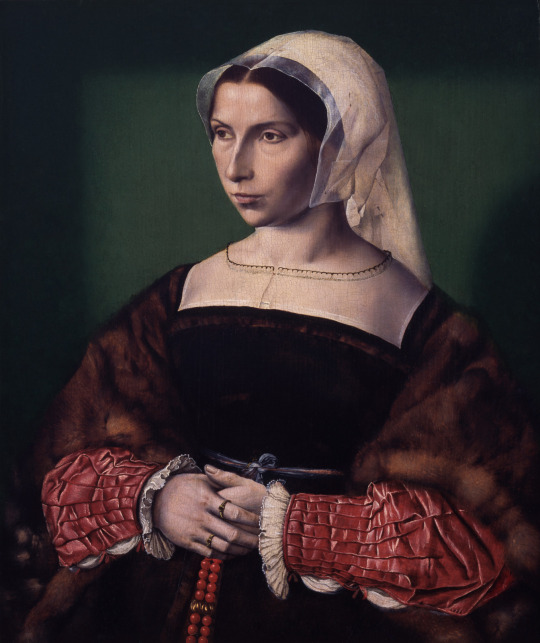
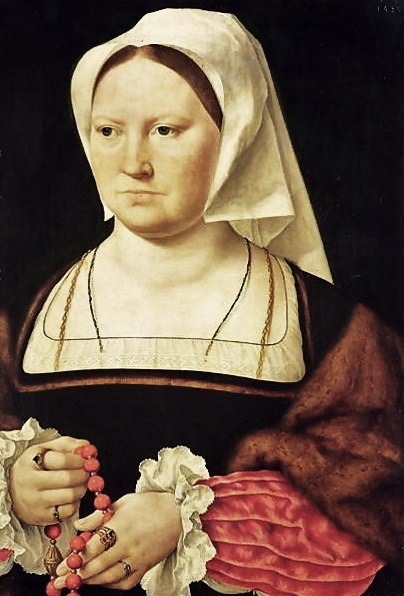
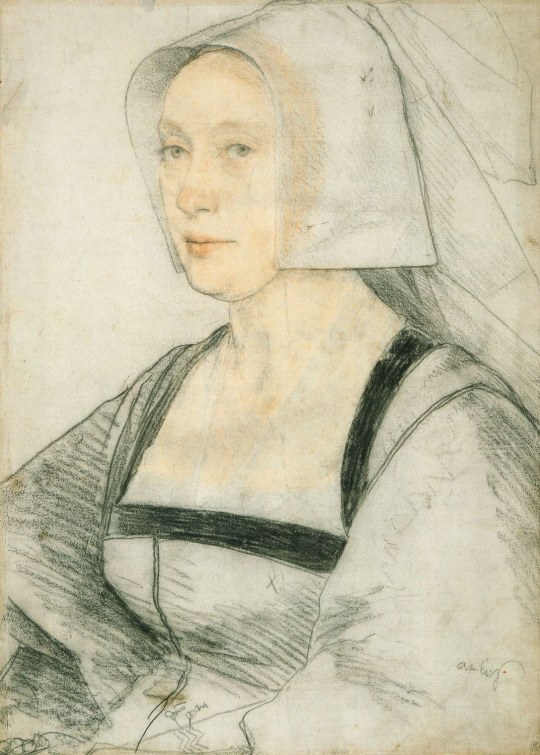
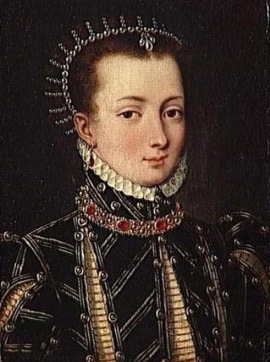
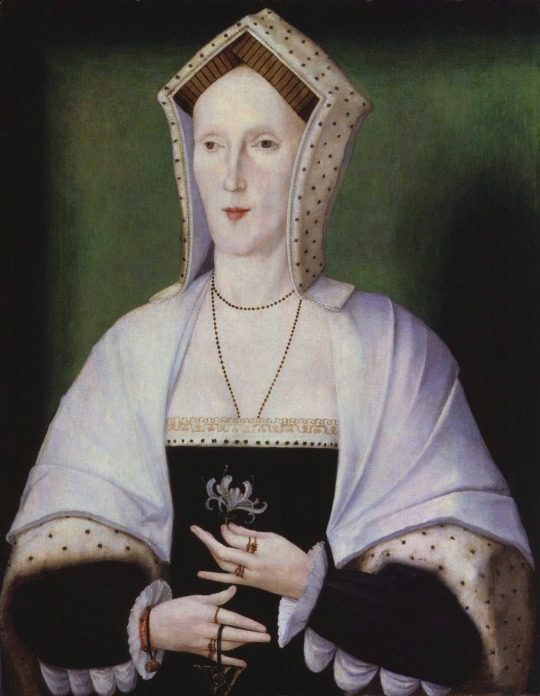
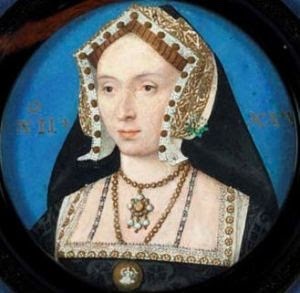
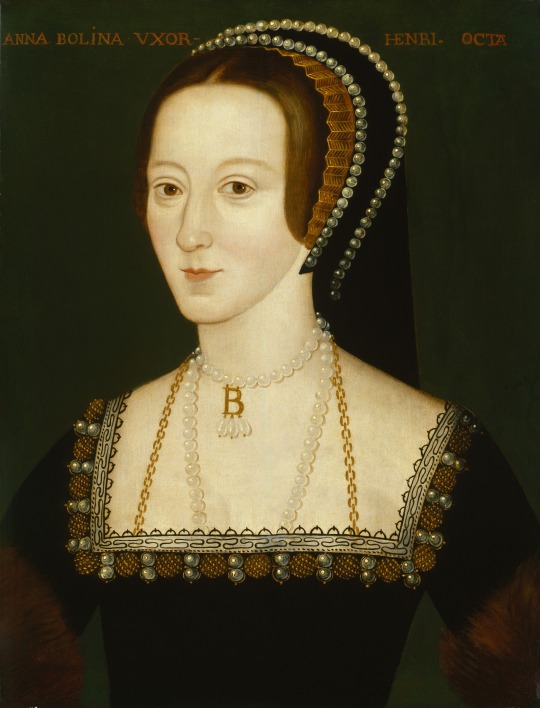
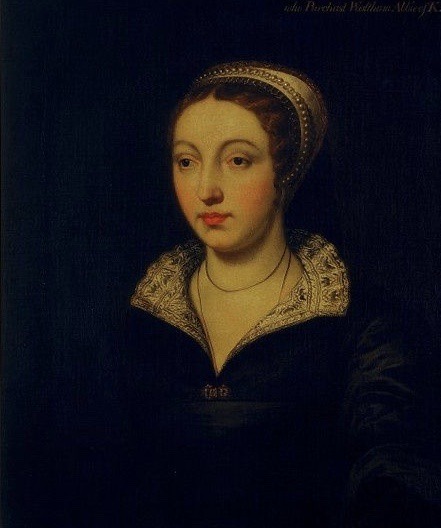
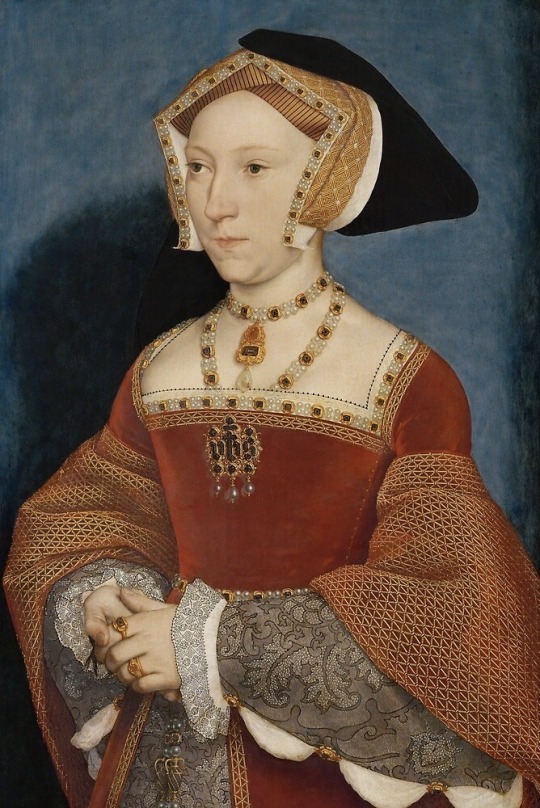
Ladies-in-waiting:
Anne Hastings - Daughter of William Hastings and Katherine Neville. Married at 10 years old to 13 year old George Talbot, becoming Countess of Shrewsberry. The two had 11 children.
Mary Say - Daughter of Sir William Say and Elizabeth Fray. Married to Henry Bourchier.
Elizabeth Scrope - daughter of Sir Richard Scrope and Eleanor Washbourne. Married to William Beaumont.
Margaret Scrope - No info.
Elizabeth Stafford - Daughter of Edward Stafford and Eleanor Percy. Her father was executed for treason against Henry VIII. Married to Thomas Howard, making her the Duchess of Norfolk. The two had five children. In 1530, she was caught conveying letters to Catherine of Aragon, and was exiled from court the next year.
Agnes Tylney - Daughter of Hugh Tylney and Eleanor Tailboys. Married to Thomas Howard, making her the Duchess of Norfolk. The two had seven children. She was put in the tower when her step-granddaughter, Katherine Howard, was convicted for treason, but was eventually released.
Maud Green - Daughter of Sir Thomas Green and Jane Fogge. Married to Sir Thomas Parr when she was 16 years old. The two had three children, including Katherine Parr.
Elizabeth Howard - Daughter of Thomas Howard and Elizabeth Tinley. Married to Thomas Boleyn. The two had three children, including Anne Boleyn.
Margaret Pole - Daughter of George Plantagenet and Isabel Neville. Her brother, Edward, was executed in 1499 for treason against Henry VII. Married to Sir Richard Pole, the two had five children. She was executed in 1541 for treason against Henry VIII.
Joan Vaux - Daughter of Sir William Vaux and Katherine Penyston. Married to Sir Richard Guilford, the two had one child. In 1499, she was made Lady Governess to Princess Margaret and Mary. She stood for Henry VIII as a witness that Catherine of Aragon and Arthur, Prince of Wales, had consummated their marriage.
Maids-of-honor:
Dorothy Badby - No info.
Elizabeth (Bessie) Blount - Daughter of Sir John Blount and Catherine Pershall. She was mistress to Henry VIII for about eight years, and bore him an illegitimate son, Henry Fitzroy. Married Gilbert Tailboys, then again to Edward Clinton. She gave birth to 7 children in her lifetime.
Gertrude Blount - Daughter of William Blount. Married to Henry Courtenay, the two had two children. She was chosen as godmother at the confirmation of Princess Elizabeth, even though she was a close friend of Catherine of Aragon. In 1538, she was put in the Tower along with her husband and son. Her husband was executed, but her and her son were released.
Anne Boleyn - Daughter of Thomas Boleyn and Elizabeth Howard. Married Henry VIII when his marriage to Catherine of Aragon was annulled. The two had one child, the future Elizabeth I. She was executed on false charges in 1536.
Joan Champernowne - Daughter of Sir Phillip Champernowne and Katherine Carew. Married to Sir Anthony Denny, the two had twelve children.
Elizabeth Darrell - Daughter of Sir Edward Darrell and Alice Flye. She was the mistress of Sir Thomas Wyatt, who she bore three children by. Married to Robert Stroud in her later years.
Bridget Fogge - Daughter of Sir John Fogge and Alice Fogge. Married to Antoneye Lowe, the two had four children.
Margery Horsman - Close friend of Anne Boleyn’s, and was one of those interrogated before Anne’s arrest.
Frideswide Knight - No info.
Mary Norris - Daughter of Thomas Fiennes and Anne Bourchier. Married to Sir Henry Norris, the two had four children. Five years after her death, her husband was executed for being one of the five alleged lovers of Anne Boleyn.
Katherine Payne - No info.
Jane Popyngcort - Taught Princess Margaret and Mary French. Was rumored to be a mistress of Henry VIII.
Maria de Salinas - Daughter of Martín de Salinas and Josefa González. Married to William Willoughby, the two had one child. She was a good friend of Catherine of Aragon’s, but wasn’t allowed to see her after the annulment from Henry VIII.
Jane Seymour - Daughter of Sir John Seymour and Margery Wentworth. Married Henry VIII after the execution of Anne Boleyn, and she bore him one child, a son. She died not long after she gave birth.
Anne Stanhope - Daughter of Sir Edward Stanhope and Elizabeth Bourchier. Married to Sir Edward Seymour, making her the Duchess of Somerset. The two had seven children. She was said to be very snobby, but was highly intelligent.
Lucy Talbot - No info.
Anne Weston - No info.
Mary Zouche - No info.
182 notes
·
View notes
Photo

Skeletons Falling From The Closet Charlotte, her ladies and her servants set out from Windsor for the town of Weymouth in a column of coaches on Friday, 9 September.
#andover#charlotte coates (cotes)#charlotte courtenay countess of rosslyn#charlotte&leopold#general thomas garth#george IV (prince of wales and prince regent)#harrow#james chambers#john fisher bishop of exeter and salisbury#lucy coates (cotes)#maria countess of ilchester#mrs alicia campbell#princess charlotte of wales#puddletown#salisbury#sophia of the united kingdom#the antelope inn#the hon.margaret mercer elphinstone#thomas (tommy) garth#weymouth
0 notes
Note
Opinions on them naming a daughter either Magdalen, Lucy, Gertrude or Frances?
I think Magdalen is probably unlikely.
Lucy and Gertrude were both names that were around during the Tudor period (although they weren’t super popular). I mean, there were a couple Lucys in the aristocracy but the name really didn’t hit the peak of its popular until centuries later (I don’t know a ton about the Victorian period but I believe Lucy was a very common name during that time). Gertrude on the other hand, I only know of one Gertrude at the Henrican court—Gertrude Courtenay, one of Elizabeth I’s godparents. However, it’s worth mentioning that, from what I’ve read about Gertrude, she was a good friend of Catherine of Aragon and didn’t actually want to be a godmother but felt she couldn’t refuse. Eric Ives even speculated that her being chosen might have been deliberately malicious on Henry and Anne’s part. Given that, I think Anne and Henry would be as likely to name their daughter Gertrude as they would be to name their daughter Katherine (not a snowball’s chance in hell).
As for Frances, at one point I had considered the name due to Anne’s love of France. But then I realized that Frances is the feminine form of Francis and I don’t think Henry would’ve liked that.
6 notes
·
View notes
Text
September Book Haul
September Book Haul Some of the books I have recieved recently and one I bought!
I got some amazing proofs over the last few months so I wanted to share some of them with you. A lot of these I am super excited to read. Thank you to all the publishers that sent me these books.
Here is the list:
Snowflake, AZ by Marcus Sedgwick
https://www.goodreads.com/book/show/43726590-snowflake-az?from_search=true
Opinion: I got a proof of this book as I am a huge fan of Marcus Sedgwick.
View On WordPress
#book haul#Chen Jiatong#EmilyLovesLondon#Evernight#Gena Showalter#Goodreads#Jennifer Feeley#Jenny Lovlie#Kevin&039;s Great Escape#Kitty and the Tiger Treasure#Lucy Courtenay#Marcus Sedgwick#Mermaid School#Paula Harrison#Philip Reeve#Piers Torday#Rachel Caine#Ross MacKenzie#Sarah Henning#Sarah McIntyre#Sea Witch#Sea Witch Rising#September Book Haul#Sheena Dempsey#Snowflake AZ#Sword and Pen#The Evil Queen#The Frozen Sea#Viola Wang#White Fox
0 notes
Text
Review: The Kiss by Lucy Courtenay

The Kiss by Lucy Courtenay
My rating: 4 of 5 stars
★ ★ ★ ★ – Kept me interested all through and I liked it.
Delilah kisses a french boy on a beach in France, after he uses an old greek myth as a pickup-line. Back home, everything begins to feel weird, and after accidentally causing her best friend’s break-up, she puts on her big-girl pants and tries to mend everything.
“The Kiss” was an…
View On WordPress
0 notes
Text

SAINTS DECEMBER 13
ST. ARISTON, MARTYR OF PORTO, Dec. 13
St. Lucy, was a young Roman Catholic martyr who lived in Syracuse lost her life during the persecution of Christians in the early fourth century. Her veneration spread to Rome so that by the sixth century the whole Church recognized her courage in defense of the faith. Patron of Blindness St. Lucy was martyred on December 13, 304. At her trial, the judge reportedly became enamored of her beautiful eyes, and she, to halt his passion, tore them out and sent them to him on a platter. Hence, St. Lucy - a name derived from the Latin for light, lux - is invoked as protector of the eyes. Feastday Dec 13 https://www.vaticannews.va/en/saints/12/13/st--lucy--virgin-and-martyr-of--syracuse.html
St. Elizabeth Rose, Roman Catholic Nun. Benedictine abbess, the foundress of the convent of Sainte-Marie-du-Rozoy, near Courtenay, Loiret, France. Dec. 13
0 notes
Text
VAs
Karin Anami: Maaya Uchida/Victoria Grace
Lumus: Kotono Mitsuishi/Carrie Savage
Reo Hosaka: Romi Park/Courtenay Taylor
Shunta Itsuki: Seiko Yoshida/Brianne Siddall
Anzu Itsuki: Ari Ozawa/Kyla Rae Kowalewski
Bookkeeper: Satsuki Yukino/Colleen Clinkenbeard
Elfed Wright: Masachika Ichimura/Alan Oppenheimer
Flow: Masami Nagasawa/Carrie Keranen
Flicker: Hiromi Konno/Lisa Ortiz
Terrain: Miho Sakuma/Roz Ryan
Strike: Miyuki Sawashiro/E. G. Daily
Flora: Hitomi Nabatame/Jennifer Tilly
Crawl: Satsumi Matsuda/Jeremy Shada
Strength: Rina Satō/Max Charles
Reflect: Kaori Shimizu/Rozie Curtis
Mystify: Kana Asumi/Luci Christian
Increase: Ryōta Ōsaka/Todd Haberkorn
Reduce: Shiori Mikami/Kether Donahue
Chill: Mari Hamada/Tabitha St. Germain
Tempo: Miho Hino/Brittney Karbowski
Reverie: Ikue Ōtani/Christine Marie Cabanos
Hibernate: Minori Chihara/Maggie Flecknoe
Pitch: Nana Mizuki/Deedee Magno Hall
Dune: Yu Kobayashi/Caitlin Glass
Conceal: Yuri Shiratori/Andrea Libman
Clash: Megumi Hayashibara/Wendee Lee
Reveal: Yuka Imai/Nicole Oliver
Nameless Djinn/Cherish: Mai Takahashi/Avril Lavigne
1 note
·
View note